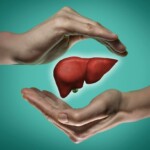Leukemia, a type of blood cancer primarily affecting children and the elderly, stands as one of the most significant medical and emotional challenges in modern oncology. This disease is marked by an uncontrolled proliferation of white blood cells, a decrease in red blood cells leading to anemia and a reduction in platelets, which are essential for blood clotting.
The Emotional Dimensions of Leukemia Through the Lens of Biodecoding
Repressed Emotions and Their Impact
Biodecoding suggests that diseases, including leukemia, are not mere biological accidents, but manifestations of internal emotional conflicts. In this case, it is often associated with deeply repressed emotions. The theory argues that “joy that does not circulate freely” and “buried hatred” can contribute to the development of this cancer. For example, children might develop leukemia in response to intense disappointments or feelings of being unwelcome or undervalued.
Loss and Its Emotional Repercussions
It’s not uncommon for leukemia to appear after the loss of a loved one, even a pet. This link between loss and disease underscores how unresolved emotional pain can manifest in our body, triggering adverse immune responses that could eventually lead to leukemia.
Symptoms and Warning Signs
Leukemia presents various symptoms that can vary by age and type of leukemia. These include:
- Persistent fatigue and weakness due to anemia
- Recurring fevers or infections, due to white blood cell dysfunction
- Easy bruising or bleeding, a sign of platelet insufficiency
In Children and the Elderly
Blood cancer in children: in minors, leukemia can reflect a deep personal devaluation or a resistance to grow and mature in an environment they perceive as hostile.
Symptoms of leukemia in the elderly: may experience more severe symptoms and complications due to the general weakness of their immune system and other pre-existing conditions.
Emotional and Physical Treatment
Biodecoding and Conventional Approaches
While conventional medicine treats leukemia with chemotherapy, radiation therapy and, in some cases, bone marrow transplants, biodecoding offers an emotional and psychological complement to these treatments. Treating leukemia with love and emotional support can be crucial. Recognizing and addressing repressed emotions can improve the patient’s quality of life and potentially their long-term prognosis.
Emotional Education as Part of the Treatment
Interventions that encourage emotional expression and stress management, such as group therapy, psychological counseling and relaxation techniques, can be beneficial. Learning to “go with life rather than against it” can be a powerful strategy for patients, helping them find peace and resilience.
Conclusion: Living with Leukemia
The emotional consequences of leukemia are profound and require as much attention as the physical symptoms. Adopting a new mental model that includes freedom in the present and accepting life with its limitations and challenges is crucial. Being “safe being myself” is a mantra that can help those affected by leukemia face their illness with a new perspective, embracing life with hope and determination.
Biodecoding does not replace traditional medical treatment, but it offers a holistic approach that considers emotional health as a critical component in the fight against leukemia and other serious diseases. By understanding and addressing our emotions, we can aspire to a more fulfilling and healthy life, even in the midst of illness.
Transform your emotional and spiritual life with a personalized tool
Discover the power of Biodecoding combined with Kabbalah. Through your Personal Kabbalistic Tree, designed based on your name and date of birth, you’ll receive a practical guide to work on your emotions and achieve holistic well-being.





